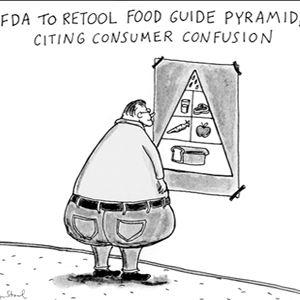
Nutrition experts are hailing a federal decision to drop recommended restrictions on total fat consumption in the forthcoming 2015 Dietary Guidelines for Americans.
Over the past decade, research has shown that a diet rich in healthy fats can be better for people, particularly if those fats help offset consumption of foods containing high levels of salt, sugar and refined grains, Dr. Dariush Mozaffarian, dean of Tufts University's Friedman School of Nutrition Science and Policy in Boston, wrote in a viewpoint article on the federal decision.
The report appears in the June 23/30 issue of the Journal of the American Medical Association.
Read: Low-carb vs high-fat - which is best for weight loss?
That research prompted independent scientists on the federally funded 2015 Dietary Guidelines for Americans Committee to quietly abandon current recommended restrictions on dietary fat, he said.
For the first time since 1980, the committee did not propose restricting total fat consumption in its technical report, which was released earlier this year.
Low-fat diets have had unintended consequences, turning people away from healthy high-fat foods and toward foods rich in added sugars, starches and refined grains. This has helped fuel the twin epidemics of obesity and diabetes in America, Mozaffarian said.
Read: Tim Noakes on carbohydrates
"We really need to sing it from the rooftops that the low-fat diet concept is dead," Mozaffarian said. "There are no health benefits to it."
Current dietary guidelines hold that only up to 35 percent of daily calories should come from fat. The committee's recommendation drops the entire concept, Mozaffarian noted.
"What's really noticeable is not they came out with a dramatic statement that we should drop the limit on total fat, but that they really quietly ignored the whole thing," he said. "There's no chapter on fat. There's no statement on fats."
Read: Victoria's Secret models ditch the carbs for fat to trim their runway figures
Based on the committee's recommendation, the U.S. Department of Agriculture and the U.S. Department of Health and Human Services are expected to issue an updated set of dietary guidelines later this year that omits any limits on total fat consumption, Mozaffarian said.
Sotiria Everett, a registered dietitian at the Katz Institute for Women's Health in Lake Success, N.Y., said, "This seems to follow increasing scientific evidence that reducing total fat intake may not benefit heart health and cholesterol levels, especially since consumers' response to the initial limitations on fat led to increased consumption of refined carbohydrates and added sugar."
Dropping restrictions on healthy fats will allow Americans to adopt eating habits like the Mediterranean diet, which has been shown to improve heart health even though it includes high-fat items, Everett said.
"Many eating patterns that support heart health, such as the Mediterranean diet, consist of a fat intake that is above 35 percent fat, largely due to the emphasis of foods high in unsaturated fat such as olive oil, nuts and fatty fish," she said.
Read: Health24's DietDoc looks at how omnivores gave mankind the edge
Most dietary fats still should come from plant-based unsaturated fats, which have been shown to improve blood cholesterol levels and reduce a person's risk of heart disease and type 2 diabetes, Everett said.
But even limited amounts of saturated fats are fine, particularly if they come from plant sources like nuts or avocados, Mozaffarian said.
Mozaffarian argued that these new guidelines should offer more clarity than confusion, because now people can choose foods based on their overall quality rather than individual nutrients they contain.
"This doesn't mean that butter is good for you or that bacon is good for you. It means we have to really think about the overall quality of our food," he said.
Read: 10 golden rules of Banting
For example, high-fat foods like vegetable oil, nuts and whole-milk dairy products can be very healthy, while low-fat foods like bagels, white rice, crackers and low-fat potato chips are terrible, Mozaffarian said.
Dr. Suzanne Steinbaum, director of Women's Heart Health at Lenox Hill Hospital in New York City, said, "These new guidelines are intended to bring health back to the American diet, by encouraging fruits, vegetables and healthy fats. Hopefully, this will help in reducing the obesity epidemic."
Mozaffarian hopes that other federal programs will follow suit. For example, the Nutrition Facts label on food products currently uses a 30 percent dietary limit to calculate what an average person's daily fat intake should be, and the National School Lunch Program recently banned whole milk while keeping sugar-sweetened nonfat milk on cafeteria menus, he said.
"I think the public and doctors should really push the government to cause all of its programs to get up to date with the modern science," he said.
Dr Jeannine Baumgartne of the Centre of Excellence for Nutrition, North-West University, writes on Nutrition Society of South Africa website that fat plays an important role in a child's diet. She says that fat is not only a source of energy but is crucial for the development of the brain and eye, as well as a healthy heart and immune system.
She does emphasize, however, that the type/quaility of fat is crucial. Too many South Africans eat foods that are high in saturated fatty acids and often also contain trans fats. Trans fats have many health risks and are produced during manufacturing when liquid oils are converted to more solid oils (e.g brick margarines, shortenings).
South African children are increasingly exposed to processed foods (e.g. polony, viennas, pies, etc.), which are generally high in total fat and saturated fatty acids.
Read more:
What's SA's most sugary sauce?




 Publications
Publications
 Partners
Partners














